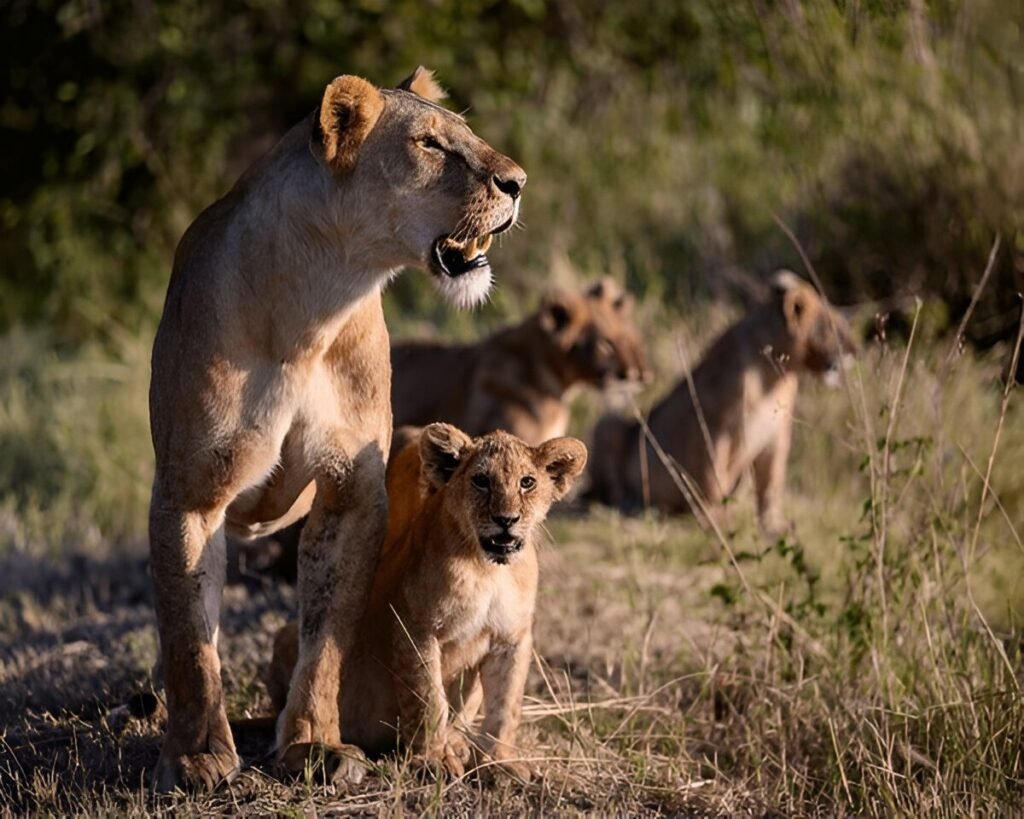Basic Swahili Phrases for Your Tanzania Safari : If you’re planning a safari in Tanzania, learning some basic Swahili phrases will enhance your experience. Swahili, or Kiswahili, is the official language of Tanzania and is widely spoken across East Africa. While many locals speak English, using a few Swahili words can help you connect with people and show respect for their culture. This guide covers essential Swahili phrases that will come in handy during your safari adventure.
Prepare for your safari with expert advice.

Basic Swahili Phrases for Your Tanzania Safari – Greetings: Start Your Day Right
In Tanzania, greetings are an important part of daily interactions. Knowing how to greet someone in Swahili will make a positive impression and set a friendly tone.
- Hello: Habari (ha-bah-ree)
- Common and casual; means “What’s the news?”
- Good Morning: Habari za asubuhi (ha-bah-ree za ah-soo-boo-hee)
- Good Evening: Habari za jioni (ha-bah-ree za joh-nee)
- How are you?: Hujambo? (hoo-jam-boh)
- Response: Sijambo (see-jam-boh) – “I’m fine.”
Learn more about Tanzanian culture and greetings.
Basic Swahili Phrases for Your Tanzania Safari – Polite Phrases: Manners Matter
Tanzanians value politeness, so knowing a few polite expressions will go a long way in your interactions with locals during your safari.
- Thank you: Asante (ah-san-teh)
- Thank you very much: Asante sana (ah-san-teh sah-nah)
- Please: Tafadhali (ta-fah-dah-lee)
- Excuse me/Sorry: Samahani (sah-mah-hah-nee)
Discover more about Tanzania’s respectful language and etiquette.
Basic Swahili Phrases for Your Tanzania Safari – Numbers: Counting in Swahili
Understanding basic numbers in Swahili is useful for bargaining in markets, asking about prices, or when organizing a tour.
- One: Moja (mo-jah)
- Two: Mbili (m-bee-lee)
- Three: Tatu (tah-too)
- Four: Nne (n-nay)
- Five: Tano (tah-noh)
- Ten: Kumi (koo-mee)
Learn more about Swahili numbers.
Basic Swahili Phrases for Your Tanzania Safari – Common Safari Terms: Wildlife and Adventure
When you’re on safari, it’s fun to use Swahili terms to talk about animals and wildlife. Here are some common words you might hear:
- Lion: Simba (seem-bah)
- Elephant: Tembo (tem-boh)
- Giraffe: Twiga (twee-gah)
- Zebra: Punda milia (poon-dah mee-lee-ah)
- Leopard: Chui (choo-ee)
- Buffalo: Nyati (nyah-tee)
Get to know the Big Five animals in Swahili.
Basic Swahili Phrases for Your Tanzania Safari – Dining and Food: Ordering in Swahili
Whether you’re enjoying local dishes at a lodge or asking for food during a stop, knowing these basic food-related phrases can enhance your dining experience.
- Food: Chakula (cha-koo-lah)
- Water: Maji (mah-jee)
- Delicious: Tamu (tah-moo)
- What is this?: Hii ni nini? (hee nee nee-nee)
- I would like…: Ningependa… (neen-geh-pen-dah)
Explore Tanzania’s food culture.
Basic Swahili Phrases for Your Tanzania Safari – Directions and Transportation: Navigating Tanzania
Whether you’re exploring on your own or traveling with a guide, these simple phrases will help you navigate the roads and paths in Tanzania.
- Where is…?: Wapi…? (wah-pee)
- Example: Wapi gari? (Where is the car?)
- Left: Kushoto (koo-show-toh)
- Right: Kulia (koo-lee-ah)
- Straight ahead: Mbele (m-beh-leh)
Learn more about navigating in Tanzania.
Basic Swahili Phrases for Your Tanzania Safari – Useful Safari Phrases: Communicating with Your Guide
On safari, you’ll often need to communicate with your guide or other staff members. These simple phrases can make your experience smoother.
- I am ready: Niko tayari (nee-koh tie-yah-ree)
- Slow down: Pole pole (po-leh po-leh)
- I see: Naona (nah-oh-nah)
- What is that?: Ni nini hicho? (nee nee-nee hee-choh)
Check out more safari communication tips.
Basic Swahili Phrases for Your Tanzania Safari – Shopping and Bargaining: Market Essentials
When visiting local markets, bargaining is a common practice. Using Swahili phrases while negotiating can improve your chances of getting a fair price and help create a friendly atmosphere.
- How much is this?: Hii ni bei gani? (hee nee bay gah-nee)
- Too expensive: Ghali sana (gah-lee sah-nah)
- Can you lower the price?: Punguza bei tafadhali? (poon-goo-zah bay tah-fah-dah-lee)
- I’ll take it: Ninachukua (nee-nah-choo-koo-ah)
Get more tips on bargaining in Tanzania.
Basic Swahili Phrases for Your Tanzania Safari – Safety and Health: Phrases for Emergencies
Although Tanzania is generally safe for tourists, it’s important to know a few key phrases in case of an emergency or health issue.
- Help: Msaada (m-sah-ah-dah)
- Doctor: Daktari (dak-tah-ree)
- I’m sick: Ninaumwa (nee-nah-oo-mwah)
- Call the police: Piga polisi (pee-gah poh-lee-see)
Find out more about staying safe in Tanzania.
Basic Swahili Phrases for Your Tanzania Safari – Farewell Phrases: Leaving with Kindness
Just as greetings are important in Tanzania, saying goodbye properly is also appreciated. Here are some friendly farewell phrases:
- Goodbye: Kwaheri (kwa-heh-ree)
- See you later: Tutaonana baadaye (too-tah-oh-nah-nah bah-ah-dah-yeh)
- Safe travels: Safari njema (sah-fah-ree n-jeh-mah)
Learn more about Tanzanian hospitality.

Basic Swahili Phrases for Your Tanzania Safari : Conclusion
Learning a few basic Swahili phrases for your Tanzania safari will make your journey more enjoyable and interactive. Not only will it help you communicate more easily, but it will also show your respect for local culture and traditions. Whether you’re greeting a guide or bargaining at a market, these phrases will help you feel more connected to Tanzania and its people.
For personalized safari packages and expert-guided tours in Tanzania, visit Kilimanjaro Climb Specialist or Eddy Tours & Safaris.

